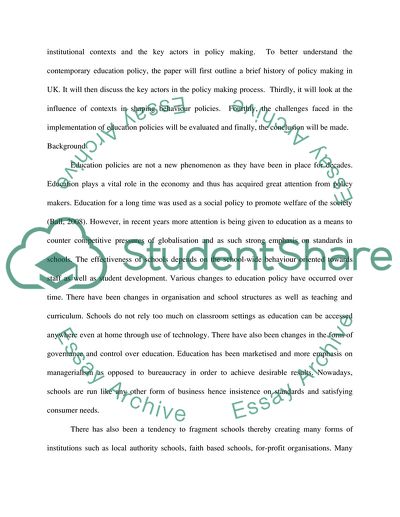Cite this document
(“Behaviour Policy in Schools Essay Example | Topics and Well Written Essays - 2000 words”, n.d.)
Retrieved from https://studentshare.org/miscellaneous/1605672-critically-examine-the-policy-process-in-schools-in-relation-to-behaviour-policies-your-answer-should-include-references-to-standards-institutional-contexts-and-key-actors
Retrieved from https://studentshare.org/miscellaneous/1605672-critically-examine-the-policy-process-in-schools-in-relation-to-behaviour-policies-your-answer-should-include-references-to-standards-institutional-contexts-and-key-actors
(Behaviour Policy in Schools Essay Example | Topics and Well Written Essays - 2000 Words)
https://studentshare.org/miscellaneous/1605672-critically-examine-the-policy-process-in-schools-in-relation-to-behaviour-policies-your-answer-should-include-references-to-standards-institutional-contexts-and-key-actors.
https://studentshare.org/miscellaneous/1605672-critically-examine-the-policy-process-in-schools-in-relation-to-behaviour-policies-your-answer-should-include-references-to-standards-institutional-contexts-and-key-actors.
“Behaviour Policy in Schools Essay Example | Topics and Well Written Essays - 2000 Words”, n.d. https://studentshare.org/miscellaneous/1605672-critically-examine-the-policy-process-in-schools-in-relation-to-behaviour-policies-your-answer-should-include-references-to-standards-institutional-contexts-and-key-actors.


